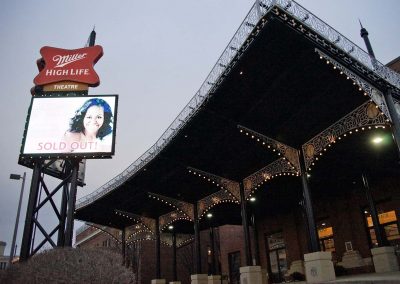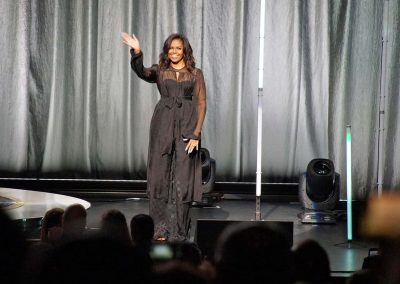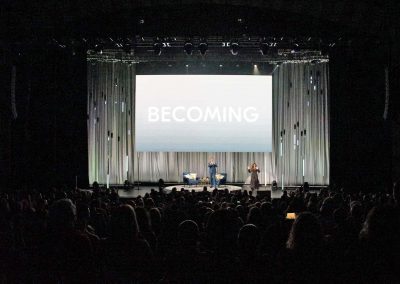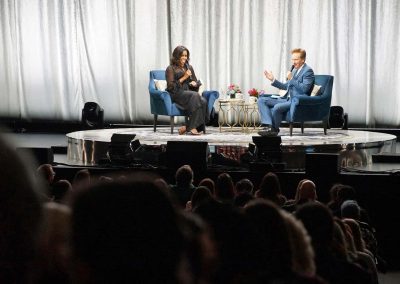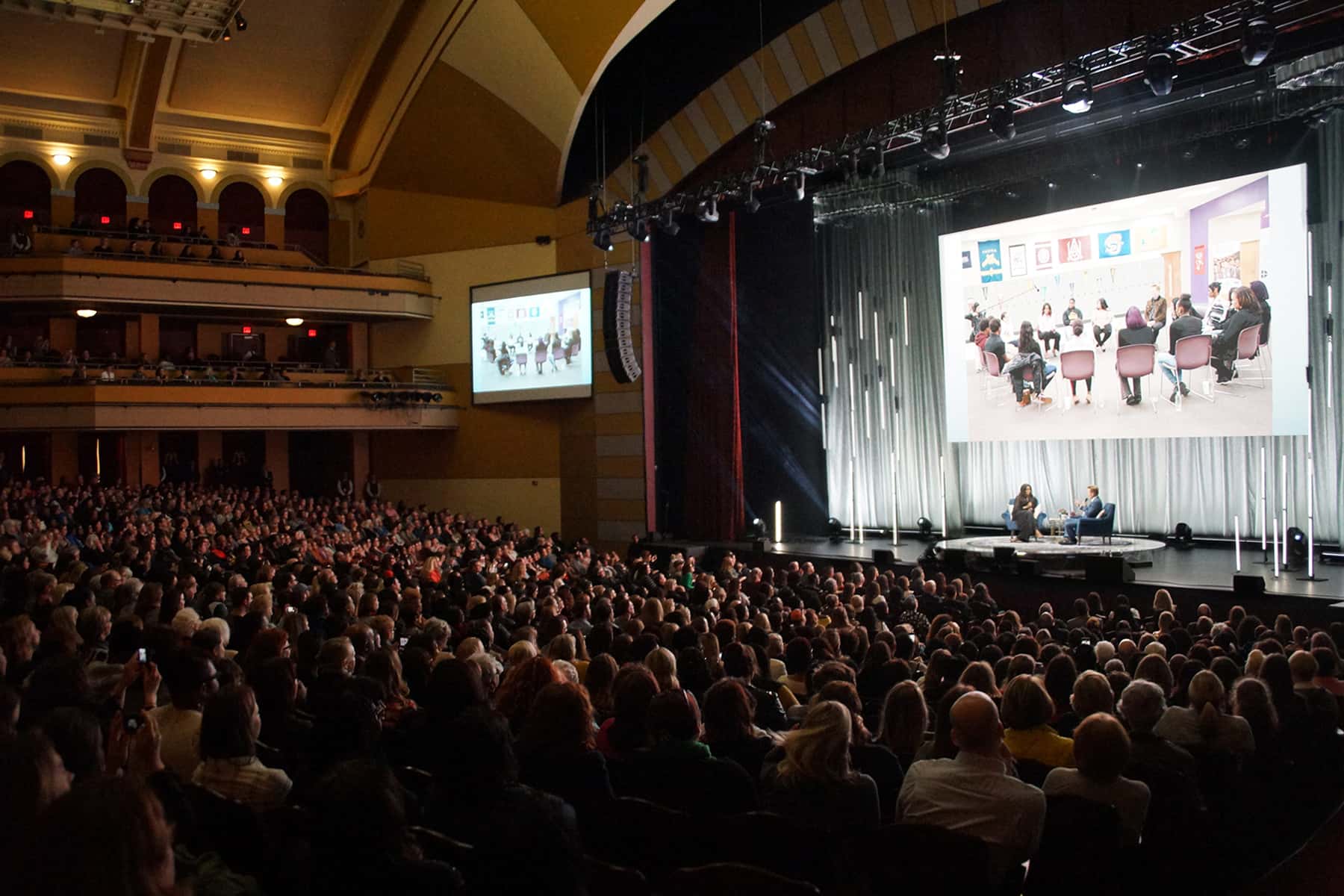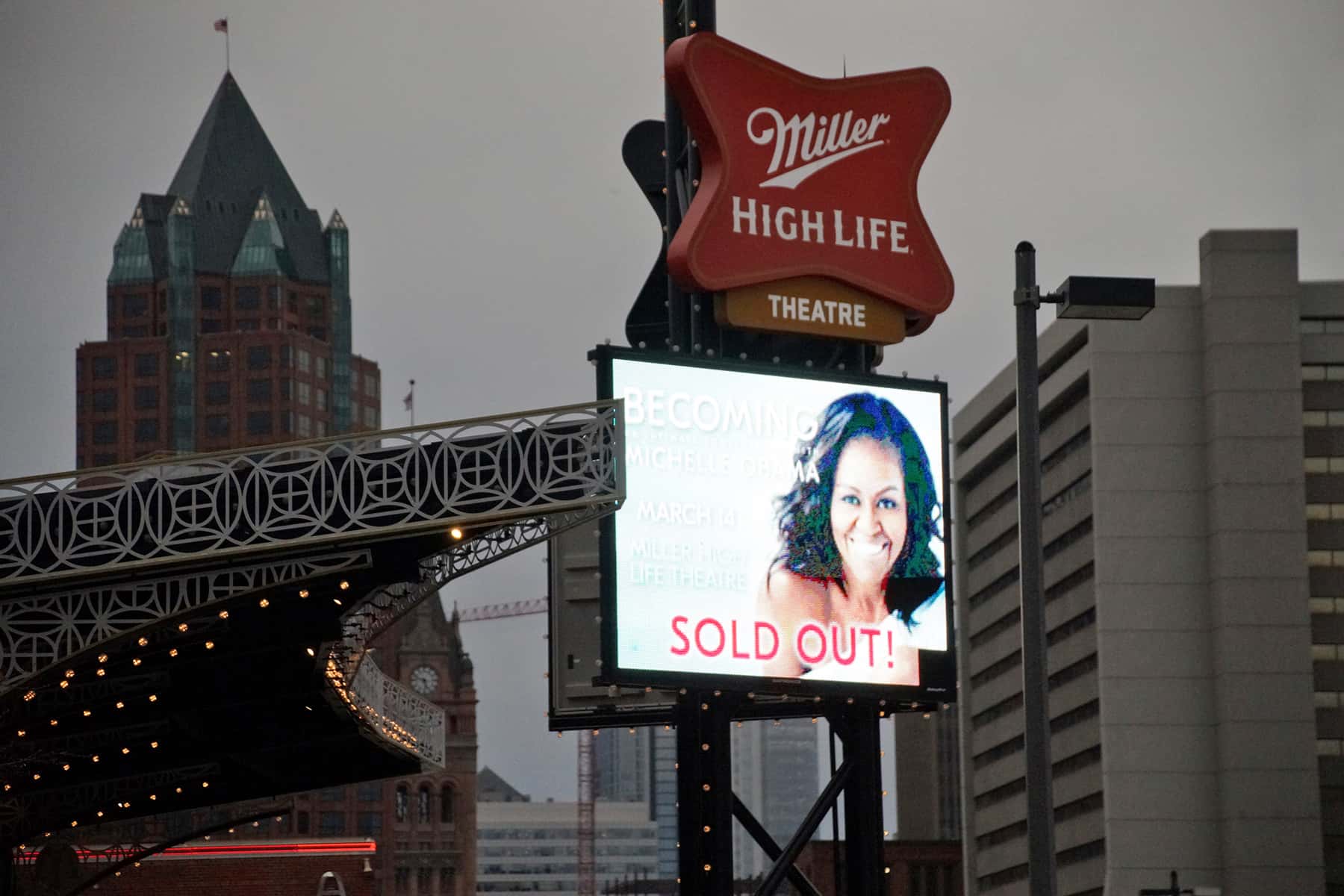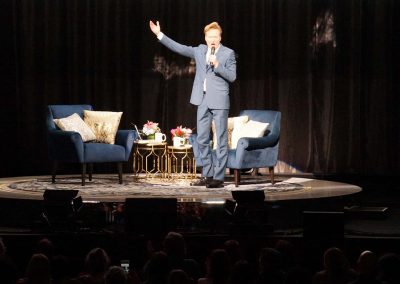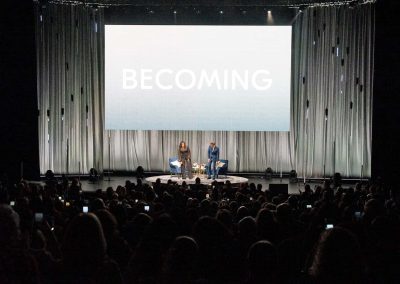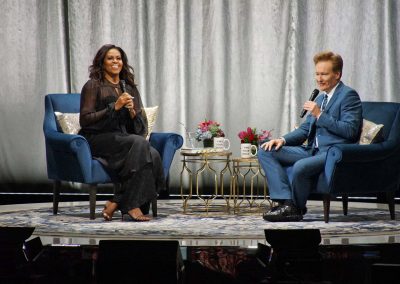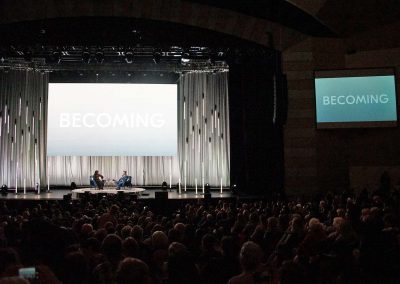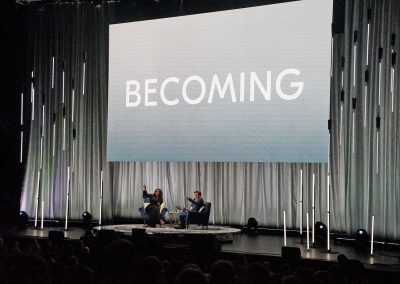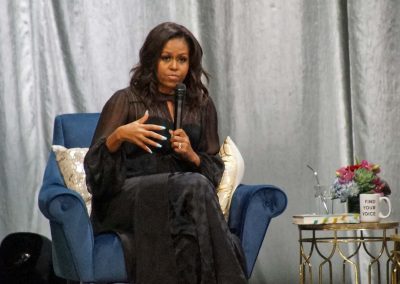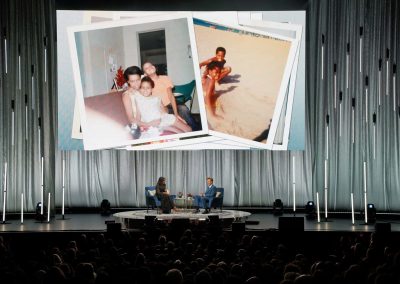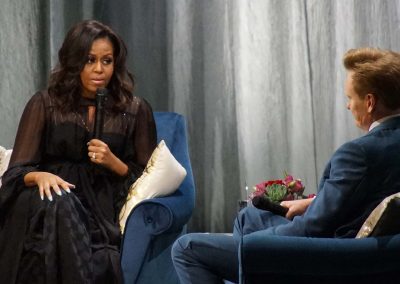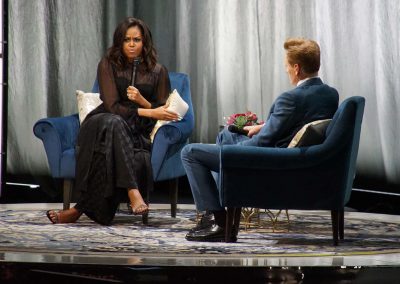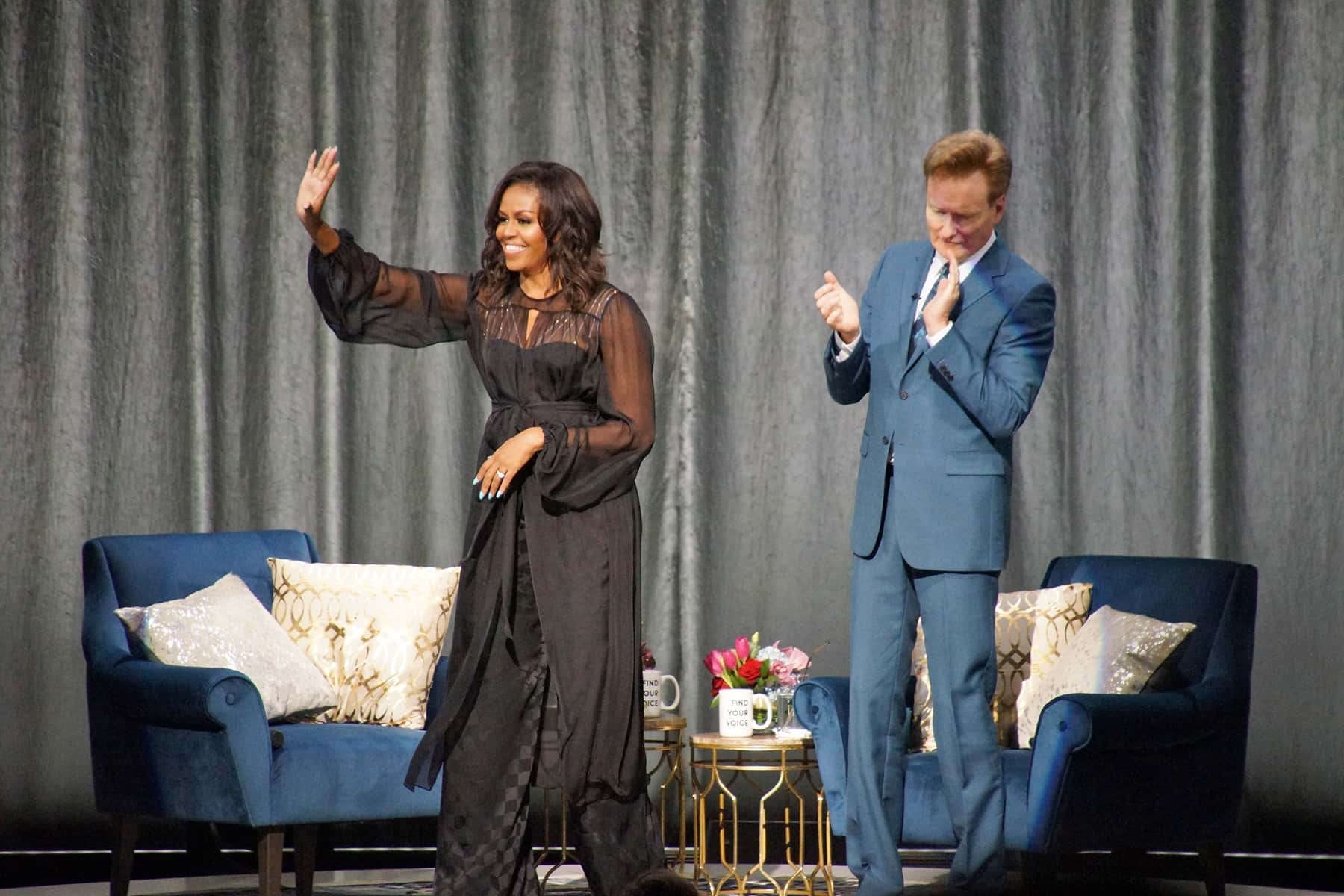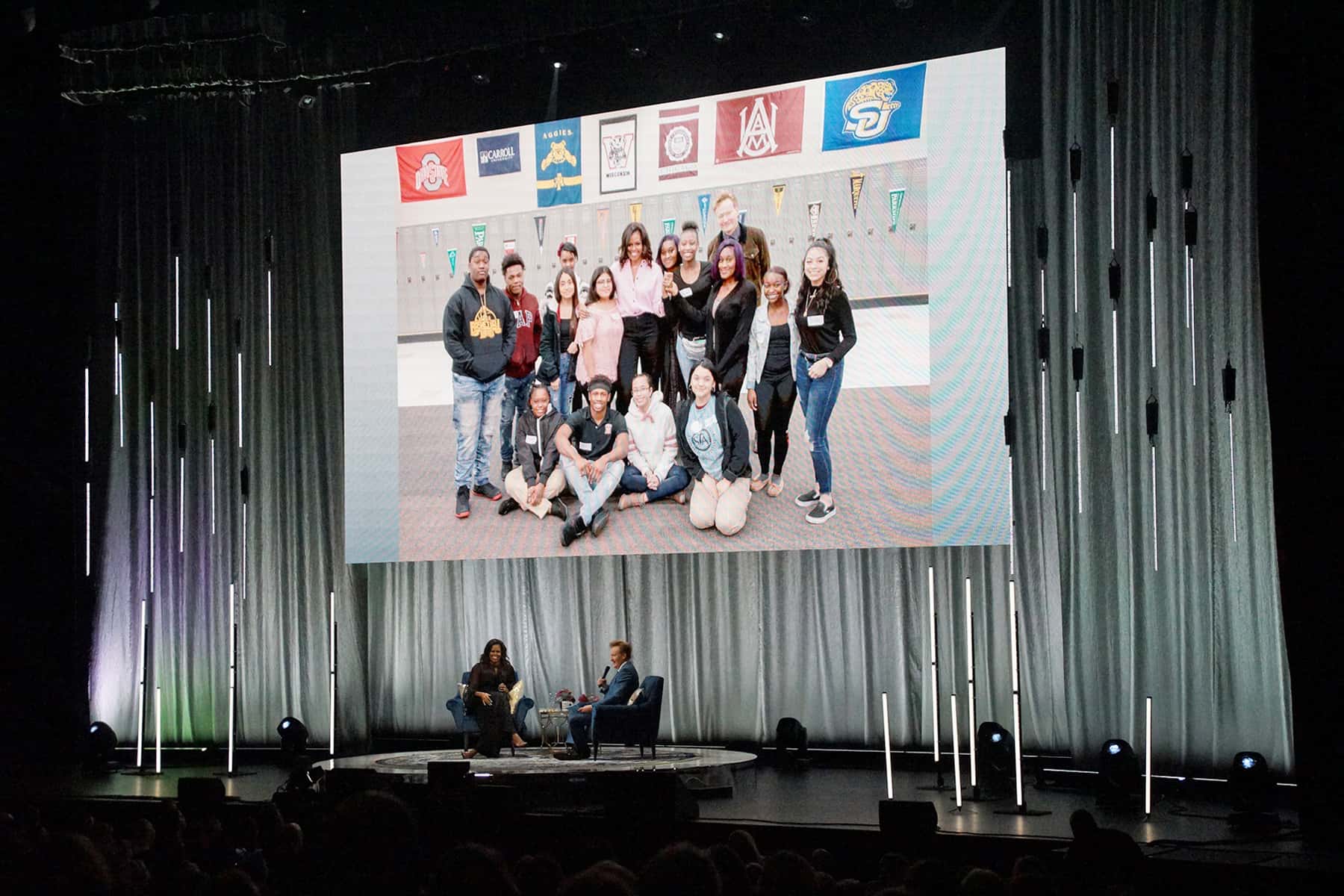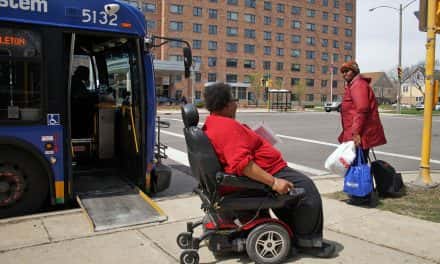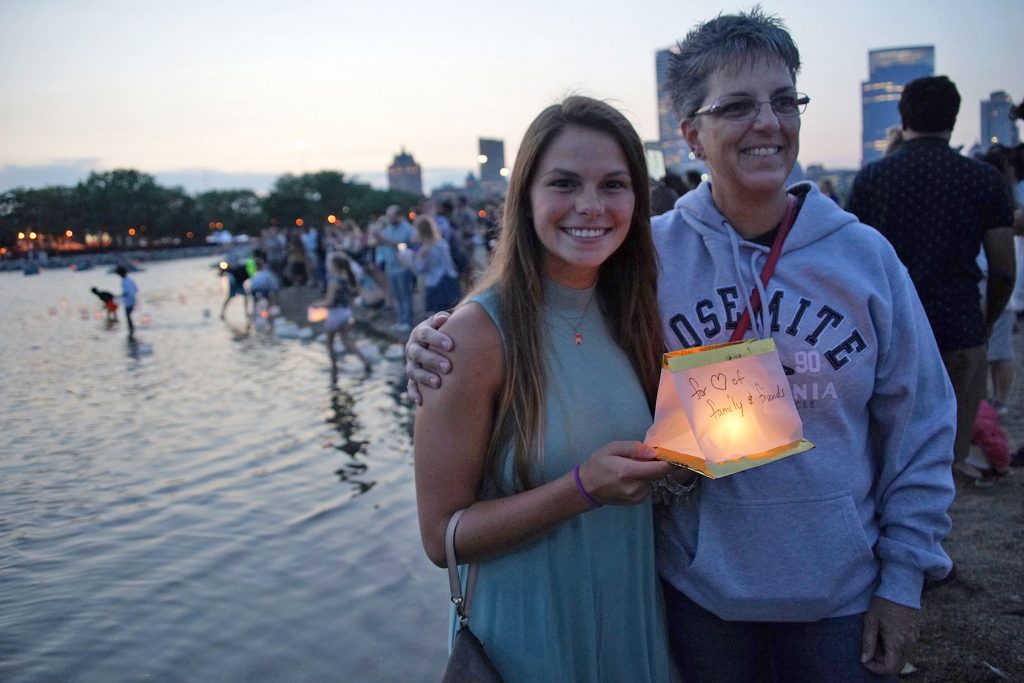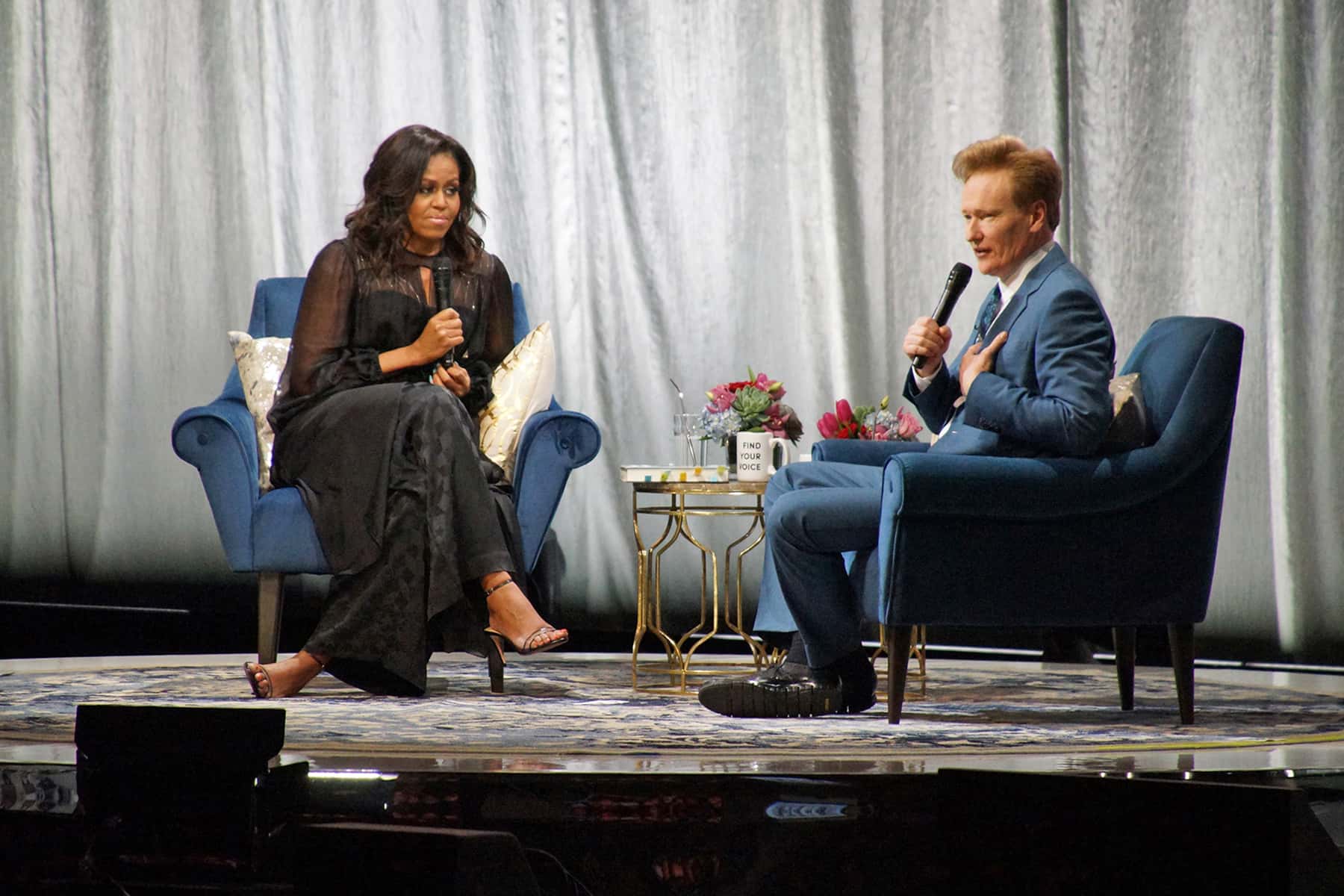
I had the rare pleasure of seeing Michelle Obama on March 14, when she stopped by the Miller High Life Theatre as part of the nationwide promotional tour for her book, “Becoming.”
The former First Lady graced the stage with her eloquence, kindness, and dignity. The theatre was filled with a sense of warmth and comfort, as if just for a moment we had never seen her leave the White House. Thousands attended the event to listen to her personal stories and reflections from her wildly popular memoir.
At one point in the discussion she asked the audience, “What are you becoming?”
As a young woman, I am finding my way in the world just like everyone else. But what I am becoming? That is still a question I do not have an answer for.
TV host, Conan O’Brien, moderated the event and said what we in the audience were all thinking, Mrs. Obama’s message was “honest, funny, inspiring, and it did something we all needed right now, it brings us together.”
Throughout the show, Mrs. Obama reminded us of that connection. Sharing our story and understanding the context, to be able empathize and build deeper connections, instead of the separation along political lines that so much of the nation feels right now.
Ms. Obama referred to different moments along her life journey, as she grew up on the southside of Chicago, went to Princeton, worked at a law firm, and eventually called the White House her home. As she reflected on the challenges of being in the public light, she also mentioned similar themes that I and other audience members could relate to. Struggles of everyday life and finding balance.
A portion of her book that I personally connected with was when she discussed her ambition, but also her uncertainty of where she was really going. On a similar level, I am not sure where I am going, or what I’m becoming. I enjoyed the discussion of “you’re never done growing, change isn’t finite,” and that was reassuring.
Like past generations, the youth today are stereotyped and often marginalized when it comes to shaping influential policies. So, hearing her say “we’ve got amazing young people in this country,” made me feel a lot better about about the situation.
Her held so many simple truths, and offered comfort in their example. I often feel that the door of opportunity has been shut in my face, with questions about my abilities due to my age and gender. Mrs. Obama understood that experience, and had an extra element of racial discrimination to deal with.
After applying to a top university and being told that “she wasn’t Princeton material” and simply not good enough, Mrs. Obama worked hard to prove that those views were wrong. She told the crowd, that if anyone experienced the same kind of marginalization, they should reply, “I will show you that I am dedicated.”
I think a lot of young people hear this, especially in the college and the college application process. It is very competitive and many feel they have to be the absolute best all the time. It is that kind of “dedication” that Mrs. Obama talked about.
“Resilience is the key to success.”
She wanted listeners in the theatre to know that she would not have gotten anywhere in life without that ability. Resilience was how she tore down every barrier that tried to block her journey. That insight and determination was what inspired me, and so many young people like me. As an activist, I know I want to fight for something to make conditions better for others. And like Michelle Obama, I want to become someone who is influential.
It was hard to avoid the current polarization and political climate of the nation, and Mrs. Obama covered that topic as skillfully as she did everything discussed. She described the ugliness of being segregated and labeled as “the other,” and how discrimination was still very prevalent.
The former First Lady talked about how all her life she was made to feel like she did not belong, even after reaching one of the most respected positions in the country. She told the story about how, as she decided to write the book, she did not want to subject herself to that public hatred again. But she felt it would help her in a therapeutic way.
“Chapter 17 was the hardest to write, because no one wants to see terrible things about themselves.”
Her main purpose was to acknowledge the pain others had caused, so they “own the cuts they give you.” I thought that was a powerful thing for everyone to hear, especially young people. I have beaten myself, especially with the critiques of others, and from being “otherized.” Those cuts should not sting because “those people don’t know you.”
There were other ways Mrs. Obama was made into an other, but I have not had to face those situations because of my race and privilege. But I can relate to being an other regarding gender. Mrs. Obama noted that our society is “raising girls to be strong and independent and have a voice, but are we preparing them for a workplace that doesn’t exist yet.”
Another topic that has been very difficult for the nation to deal with has been in regards to immigration. Mrs. Obama expressed her hope that the situation will improve, and offered her thoughts on what she felt could bring people together.
“It’s harder to hate our neighbor when we know them. Connection is powerful. Through sharing stories, we learn to fear less.”
On the subject of polarization, she talked about how this country is worthy of a high standard for its people, and that it is “easy for a leader to whisper in your ear to plant a fear your neighbor.”
She knows that people are caring but can be misinformed and easily swayed by fear. But Mrs. Obama remined optimistic
“It’s not Michelle Obama’s story, it’s the American story.”
That was why so many people love the Obama family, and were gathered together in that theatre. Because Mrs. Obama, her husband, and her children touched our hearts. Seeing them leave the White House two years ago felt like the loss of someone close, a loved one. We related to them, because they reflected all the things we have had to struggle with.
We resonate with the story of family, love, and success because that is what the American dream is supposed to be, not the strong succeeding as a result of victimizing the weak. America is a country of people from all different walks of life, but Mrs. Obama reminded us that, “it doesn’t matter our differences, you can still appreciate and value a story.”
I am still on my journey of “Becoming,” especially in culture with dangerous politics to navigate. But listening to Mrs. Obama speak gave me many words of encouragement, and it reassured me at least for an evening.
Her message was definitely something I can continue to carry with me. So, I am thankful to Mrs. Obama for sharing her story and being the example that so many of us needed.

